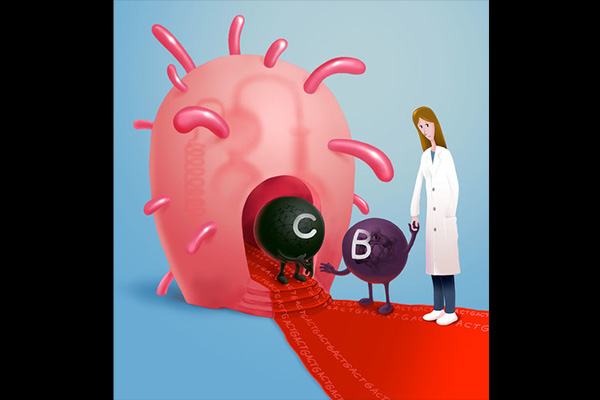
Full Text:
In another feat of bioengineering, a team of scientists has created bacteria that can, for the first time, make chemical compounds containing bonds between boron and carbon. Before now, such boron-carbon bonds came only from the laboratories of chemists and could not be produced by any known life-form.
The finding is part of a new wave in synthetic biology in which living organisms are taught to make chemical compounds needed for pharmaceuticals, agricultural chemicals and other industrial products. Last year, the team also engineered bacteria to produce molecules with silicon-carbon bonds, called organosilicon compounds, which can be found in everything from pharmaceuticals to semiconductors. By using biology, researchers can potentially make the chemical compounds in "greener" ways that are more economical and produce less toxic waste.Image credit: David Chen and Yan Liang/BeautyOfScience.com